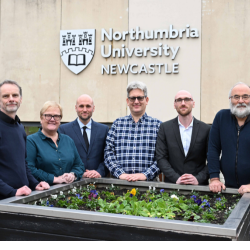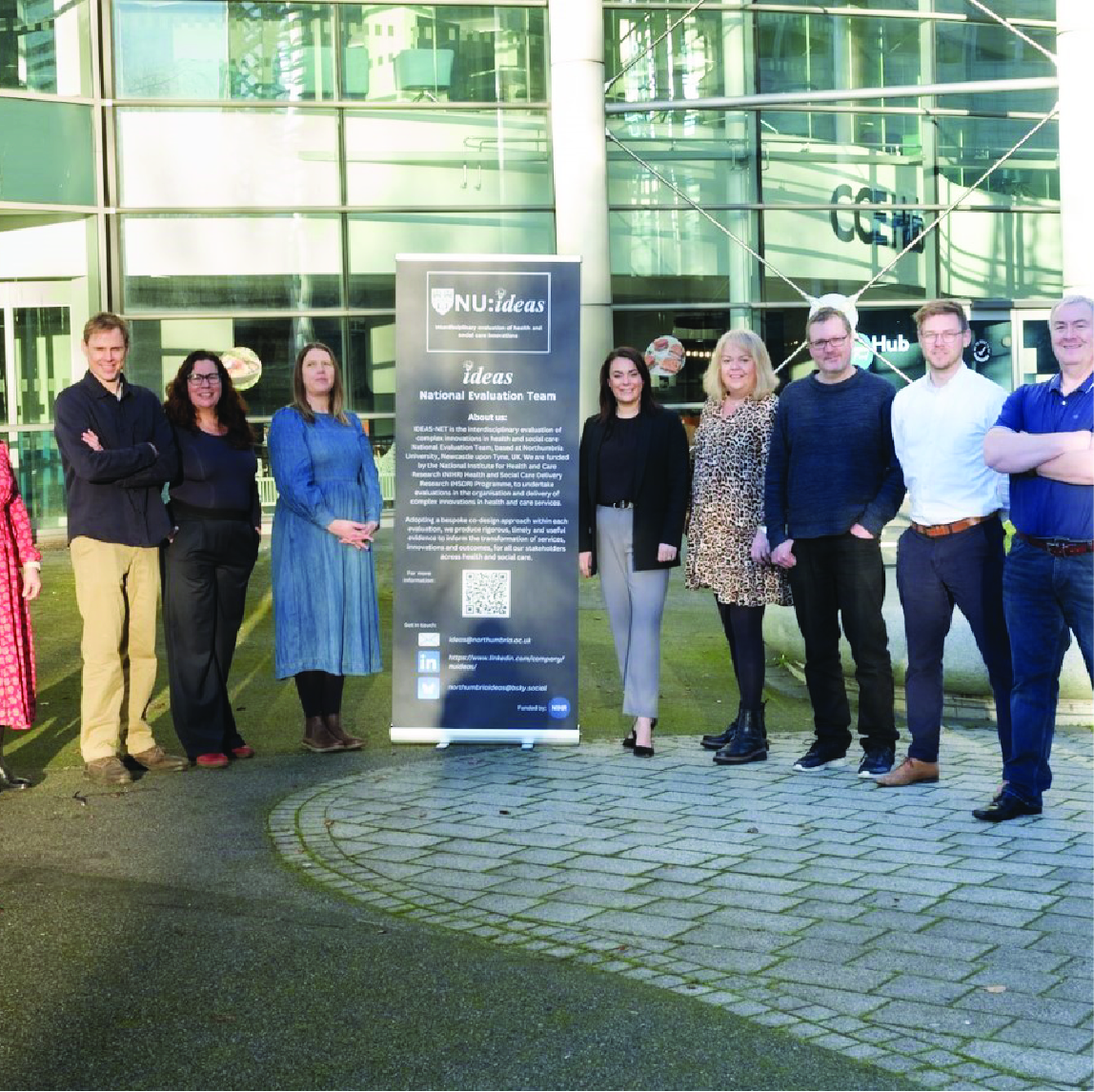-
Study
-
Quick Links
- Course Search
- Unlock Your Potential
- Still time to Apply
- Higher and Degree Apprenticeships
- Continuing Professional Development
- Still time to apply
-
Undergraduate
- Course Search
- Application Guides
- UCAS Exhibitions
- Foundation Years
- Fees and Funding
- School & College Outreach
- Information for Parents
-
Postgraduate
- Course Search
- Application Guide
- Postgraduate Research Degrees
- Flexible Learning
- Fees and Funding
- Change Direction
- Register your Interest
-
Student Life
- Students' Union
- The Hub - Student Blog
- Accommodation
- Northumbria Sport
- Support for Students
-
Experience Northumbria
- Open Days & Events
- Virtual Tours
- Campus Tours
- Life in Newcastle
-
-
International
International
Northumbria’s global footprint touches every continent across the world, through our global partnerships across 17 institutions in 10 countries, to our 277,000 strong alumni community and 150 recruitment partners – we prepare our students for the challenges of tomorrow. Discover more about how to join Northumbria’s global family or our partnerships.
View our Global Footprint-
Quick Links
- Course Search
- Undergraduate Study
- Postgraduate Study
- Information for Parents
- London Campus
- Northumbria Pathway
- Sign up for Information
-
International Students
- Information for Students
- International Events
- Application Guide
- Entry Requirements and Education Country Agents
- Global Offices
- English Requirements
- English Language Centre
- International student support
-
International Fees and Funding
- International Undergraduate Fees
- International Undergraduate Funding
- International Masters Fees
- International Masters Funding
- International Postgraduate Research Fees
- International Postgraduate Research Funding
-
International Partners
- Agent and Representative Network
- Global Partnerships
- Global Community
-
International Mobility
- Information for Northumbria Students
- Information for Incoming Exchange Students
-
-
Business
Business
The world is changing faster than ever before. The future is there to be won by organisations who find ways to turn today's possibilities into tomorrows competitive edge. In a connected world, collaboration can be the key to success.
More on our Business Services -
Research
Research
Northumbria is a research-rich, business-focused, professional university with a global reputation for academic quality. We conduct ground-breaking research that is responsive to the science & technology, health & well being, economic and social and arts & cultural needs for the communities
Discover more about our Research -
About Us
-
About Northumbria
- Our Strategy
- Our Staff
- Place and Partnerships
- Leadership & Governance
- Academic Departments
- University Services
- History of Northumbria
- Contact us
- Online Shop
-
-
Alumni
Alumni
Northumbria University is renowned for the calibre of its business-ready graduates. Our alumni network has over 246,000 graduates based in 178 countries worldwide in a range of sectors, our alumni are making a real impact on the world.
Our Alumni - Work For Us
What will I learn on this module?
This 20-credit module delivered is the first semester of the MSc GSBM. It aims to develop your critical understanding and evaluation of the strategies necessary for the sustainability transition. We will identify strategic paths and approaches in order to redesign the economic, rational and innovative aspects of organisations at corporate and business unit levels. The 17 Sustainable Development Goals of the United Nations (UN) and in particular SDGs 8, 9, 11, 12, and 17 will drive inspiration in the classroom and we will review the theoretical constructs and debates in the field of strategic management.
The key topics of the module covered in lectures and interactive seminars span across the following topics:
SDGs and Business Strategy
Typologies of Sustainable Businesses: Organisational hybridity
Theory of Competitive Advantage: Exogenous strategies
Sustainable Strategic Capabilities: Endogenous strategies
Innovation and Sustainability
Social Enterprise [governance, finance & strategies]
Reporting sustainable strategies: from CSR to ESG
Stakeholder salience & Corporate governance
How will I learn on this module?
Critical reflection on knowledge, experience and practice underpins the learning and teaching philosophy of this module along with the explicit development of strategic thinking competence. To put this in place, the module comprises of lectures, seminars and strategy workshops covering responsible business models inspired by the SDGs and how these drive organisational change and strategic shift.
During the teaching sessions we will aim to evaluate how strategies can be developed that are both environmental and socially responsible and how they can lead to the development competitive advantage in an increasingly turbulent and dynamic business environment. The module will discuss some of the key tensions which manifest as barriers to a sustainable transition. We will explore the impact of sustainability reporting practices on corporate strategy across a range of organisational forms [including social enterprises]. We will engage with the relevant theory on strategic management, reflect on business practice and decision making aiming to transition organisations towards responsible actors.
A teaching and learning plan supports the module, outlining the formal sessions, together with the tutor-directed study and independent reading. An interactive approach to lecture sessions will draw upon the directed learning undertaken and your own experiences. Throughout, the emphasis will be on high levels of your participation, both individually and within small groups or teams. You can therefore expect embedding of reflective-practitioner approach to learning in all workshop/seminar sessions through undertaking activities that facilitate you to apply theory to 'real-life' situations, critically analysing and making recommendations for appropriate ways forward for the organisation/individual.
Directed learning will centre upon a range of activities including pre-reading, preparation for interactive activities and use of the discussion board on the e-learning platform. Independent learning will centre upon you identifying and pursuing areas of interest in relation to the subject area or by providing deeper/broader knowledge and understanding of the subject through a range of learning activities that might include extended reading, reflection, research etc.
How will I be supported academically on this module?
A member of academic staff leading the module and a set of subject experts leading the lecture inputs on the five streams of the module provide significant module support. The electronic Learning Portal (eLp) will house lecture and seminar materials relating to the module supported. You will be provided with a wide-ranging electronic reading list that comprises of various journal papers, conference papers and textbooks that cover sustainable strategies and business models for organisations.
What will I be expected to read on this module?
All modules at Northumbria include a range of reading materials that students are expected to engage with. The reading list for this module can be found at: http://readinglists.northumbria.ac.uk
(Reading List service online guide for academic staff this containing contact details for the Reading List team – http://library.northumbria.ac.uk/readinglists)
What will I be expected to achieve?
Knowledge & Understanding:
Identify and critically evaluate sources of sustainable competitive advantage within a global business context [MLO1]
Intellectual / Professional skills & abilities:
Critically evaluate the wider impact of strategic business decisions and change on organisational stakeholders [MLO2]
Personal Values Attributes (Global / Cultural awareness, Ethics, Curiosity) (PVA):
Working within a team be able to make ethically informed arguments about the nature of organisational activities [MLO3]
How will I be assessed?
The assessment strategy of the modules aims to capture the strategic thinking, theoretical knowledge and critical thinking of the students.
Students in this module are assessed formatively and summatively. Formative assessment takes place in-class while students work individually or in learning sets on tutor-led tasks. Students will receive feedback by their tutor in class.
The module is summatively assessed aiming to evaluate students against the module learning outcomes.
Individual assignment, 3500 words (100% of the total module mark). Students will create a written strategic analysis explaining how the chosen company can create (or retain) sustained competitive. [MLO1, MLO2, ML03]
Pre-requisite(s)
None
Co-requisite(s)
None
Module abstract
In this module you will learn about responsible business and how change and transition towards sustainable orientation of organisations can be managed at corporate and business unit levels. You will gain an understanding of the overarching principles in setting and executing a sustainable organisational strategy. Within the construct of these strategic objectives, you will critically evaluate how associated responsible decisions impact on both internal and external stakeholders, and by doing so, will gain an understanding of the concept of responsible decision making and governance. The module will explore the methods of assessing risk and present possible alternative measures of organisational “performance”.
Course info
Credits 20
Level of Study Postgraduate
Mode of Study 1 year Full Time
Department Newcastle Business School
Location City Campus, Northumbria University
City Newcastle
Start September 2025
All information is accurate at the time of sharing.
Full time Courses are primarily delivered via on-campus face to face learning but could include elements of online learning. Most courses run as planned and as promoted on our website and via our marketing materials, but if there are any substantial changes (as determined by the Competition and Markets Authority) to a course or there is the potential that course may be withdrawn, we will notify all affected applicants as soon as possible with advice and guidance regarding their options. It is also important to be aware that optional modules listed on course pages may be subject to change depending on uptake numbers each year.
Contact time is subject to increase or decrease in line with possible restrictions imposed by the government or the University in the interest of maintaining the health and safety and wellbeing of students, staff, and visitors if this is deemed necessary in future.
Useful Links
Find out about our distinctive approach at
www.northumbria.ac.uk/exp
Admissions Terms and Conditions
northumbria.ac.uk/terms
Fees and Funding
northumbria.ac.uk/fees
Admissions Policy
northumbria.ac.uk/adpolicy
Admissions Complaints Policy
northumbria.ac.uk/complaints








